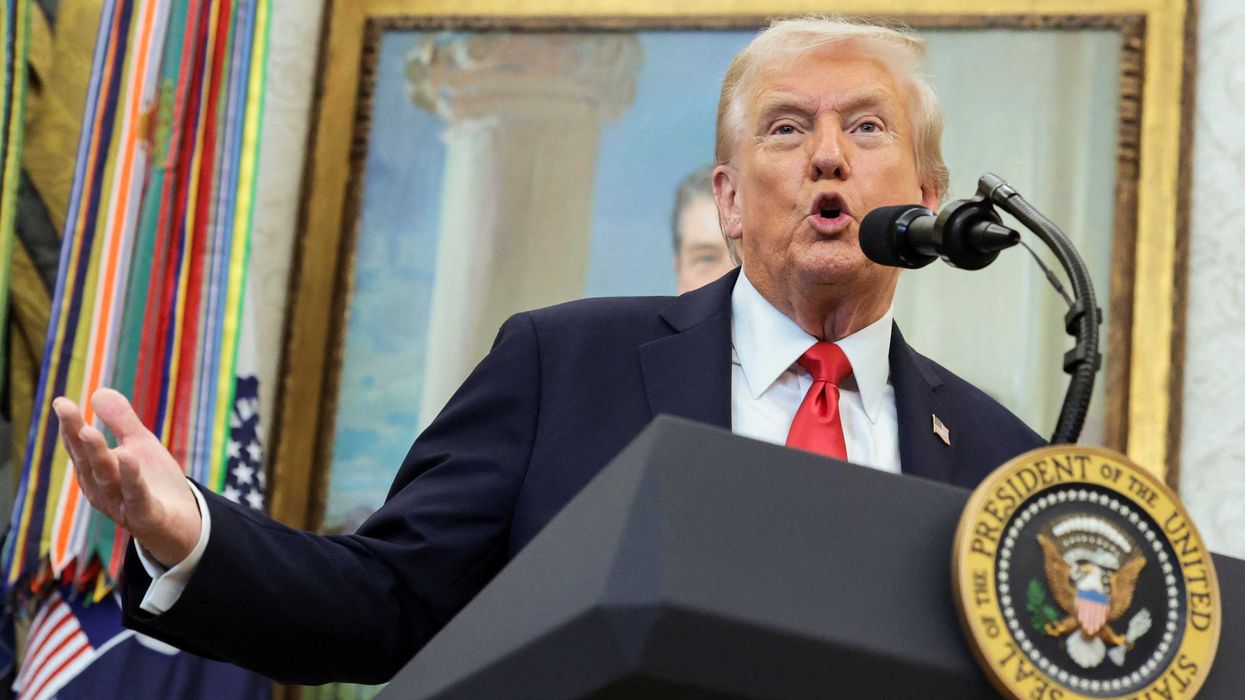Over the years, much of Donald Trump's wealth came from the real estate activities —from hotels to golf clubs to Mar-a-Lago — associated with the Trump Organization. But in 2021, Trump expanded into tech in a major way with a then-new company: Trump Media & Technology Group (TMTG), headquartered in Sarasota, Florida. Then, in 2024, the crypto marketplace World Liberty Financial became yet another income source for members of the Trump family.
TMTG's tech activities range from Truth Social, Trump's social media platform, to his cryptocurrency-related ventures. Liberal economist Paul Krugman is highly critical of Trump's involvement with crypto, which he considers a house of cards that won't be viable in the long run.
While an October 14 Substack column from Krugman criticized Trump's crypto expansion from a business standpoint, author Jacob Silverman analyzes it from an ethics standpoint in an op-ed published by the New York Times on October 17.
Silverman notes corruption scandals of the past, including Teapot Dome during the 1920s and Watergate during the 1970s — and argues that the potential for "corruption" with Trump's crypto activities is much greater.
"While campaigning, Mr. Trump announced his cryptocurrency venture World Liberty Financial, and, just days before inauguration, his namesake memecoin," Silverman explains. "Anyone can indirectly deliver money to a Trump family entity simply by buying World Liberty's tokens. Mr. Trump and his family have accrued billions of dollars in paper wealth through crypto ventures owned by the president, his sons and family friends. With World Liberty, Trump has created a powerful vehicle for those seeking influence. Anyone — you, me, an Emirati prince — can put money in his pocket by simply buying the tokens the company issues."
Silverman continues, "The key is the convenience factor. For influence peddlers, bags of cash and Swiss bank accounts have been replaced by crypto tokens that can be quickly shuttled between digital wallets and cryptocurrency exchanges. Savvier crypto users — nation-states, hacker groups, money launderers — can use digital 'mixers' and other tools to obfuscate their trail. It's precisely these conveniences that have also made crypto a favored tool of criminal organizations and sanctions evaders."
Trump is the only president in U.S. history who was voted back into office despite two impeachments and four criminal indictments. And Silverman fears the worst where World Liberty is concerned.
"We've never seen anything like this before," Silverman stresses. "You can tick off notorious executive branch scandals — President Ulysses S. Grant’s rogues' gallery of corrupt advisers, Teapot Dome's bribes for oil leases in the Harding Administration, Watergate and the downfall of Richard Nixon — but none of them featured this scale of mixing of personal and government interests, much less the sheer accumulation of profit, of Mr. Trump's multibillion-dollar crypto windfall…. Mr. Trump and his sons' enormous accumulation of crypto wealth appears set to continue throughout his term."
Silverman continues, "There seems to be no upper bound to how much foreign money can be channeled toward him. It's an open door to a form of corruption, at the highest level, that Americans have never had to confront. But we must confront the dark possibilities it presents."
Jacob Silverman's full New York Times op-ed is available at this link (subscription required).


